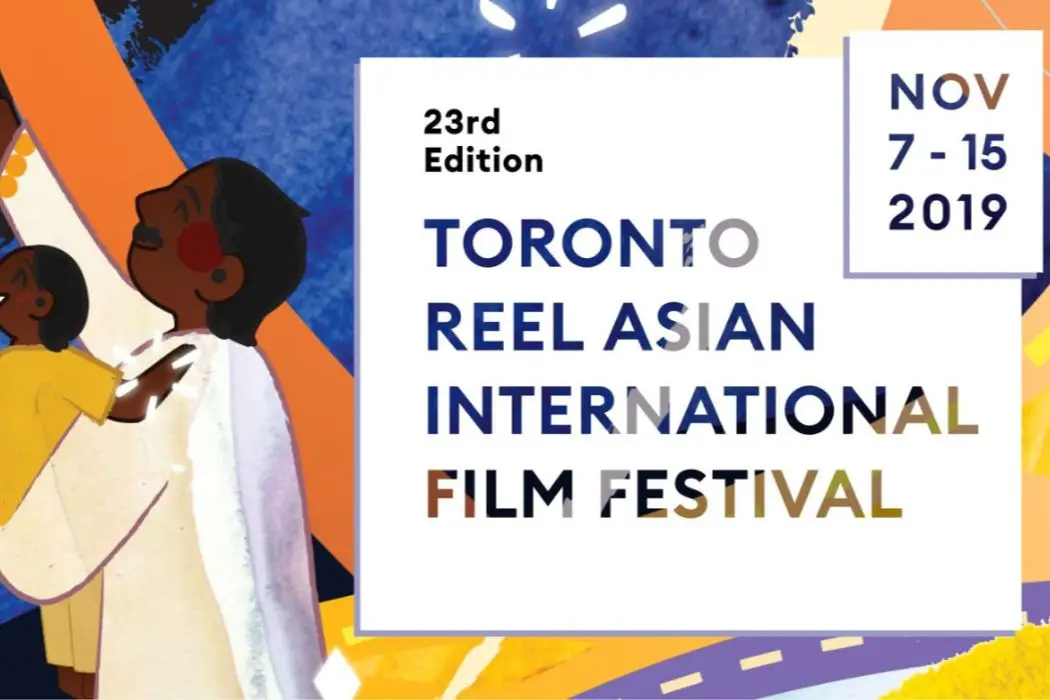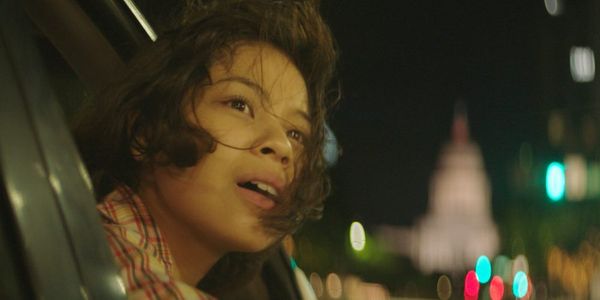Toronto Reel Asian International Film Festival 2019: Interview With Festival Director Deanna Wong

Wilson is a cinema enthusiast based out of Toronto, Canada.…
Deanna Wong is currently the Executive Director of Toronto Reel Asian Film Festival. She previously served in this role from 2005-2008, and has been a key player at numerous film festivals around the city. Coming back to Reel Asian this year, she helped lead the film festival’s 23rd edition where Asian films from all around the world were showcased.
Wilson Kwong for Film Inquiry: Coming back to Reel Asian after leaving in 2008, what do you think has changed the most about the festival?
Deanna Wong: There have been some subtle changes. They were doing a lot more international programming in the last few years, bringing a lot of award-winning films like Golden Horse winners and some more commercial films. They were bringing in big name stars, and that’s something that we never used to do in the early days, mostly because we didn’t really have the budget to support that. So I think that would probably be the biggest change.
And in terms of your approach to the festival now, are you planning to continue this trend or focus more on the smaller independent Asian films?
Deanna Wong: When we started out, that was the mandate of the festival. It was to showcase the work of independent Asian filmmakers who didn’t really have a platform to show those kinds of films. It’s not to say we weren’t doing that in the last few years, we definitely did. And I want to say that the reasoning behind bringing more commercial films was to bring an audience here so that they would then be exposed to the kind of work that doesn’t normally get that kind of attention. In the first couple of years of the festival we only showed Asian North American films, specifically films by American and Canadian filmmakers because those were the kinds of films that were really difficult to get seen at that time.
And we’ve become the kind of festival that has actually launched careers. We showed Justin Lin‘s first feature film actually, long before he did the Fast and Furious films. And an early short film that Sandra Oh starred in was also one of the films that we showed. And then of course there’s Simu Liu. He appeared in a short film and participated in our Unsung Voices workshop, which is like a free summer program for aspiring filmmakers. So he directed his first short film, and this was just a couple of years ago before he got the Kim’s Convenience role.
When it comes to selecting films, how do programmers select films for the festival? Do you get a lot of submissions or do programmers go out to other festivals shopping for films?
Deanna Wong: It’s both. We get a lot of submissions, which have really been increasing in the past few years. Whether that’s because technology is making filmmaking more accessible and the submission process more easy, it’s definitely a big change since I came back. We used to be unwrapping videotapes in the office! But in terms of seeking work, we also do that. We try to visit the big Asian American festivals in the States, but we also have a lot of contacts.
We have a lot of programmers who travel to other festivals and ask for tips and suggestions. We have strong relationships with people that have worked for lots of the big festivals. And this year in particular, we worked with Roger Garcia, who ran the Hong Kong International Film Festival for 20 years and is really respected in the Asian film industry. He helped us out this summer as well on an advisory level.
Was there a specific reason for getting him involved this year?
Deanna Wong: I guess because I had been out of the industry for a number of years, it was actually recommended to me that he would be a good person to consult. Because he had left his position and had retired in Berkeley, and was very familiar with both Asian and North American cinema. We thought that he could really help us achieve a higher level that would put us more on the map.
Speaking of Hong Kong, I’ve noticed that over the years, there’s been less films from Hong Kong screening at the festival. Is this primarily because the industry isn’t thriving as much as it used to and there’s less content to consider?
Deanna Wong: You know what, it’s fluctuated. Because I think during my first year at the festival, we actually brought Patrick Tam‘s After This Our Exile and opened with that film. That was actually the first time we had opened with a Hong Kong film. And then, like I was saying, it’s really hard for us to bring international guests because of our budget. But that year, we did get the Hong Kong Economic Trade office to support bringing him over.
And the relationship between Reel Asian and the Taiwan equivalent of the trade office really grew in the intervening yeas, so their support grew and we actually had a lot more programming from both Hong Kong and Taiwan in those years. And then this year, our presenting sponsor National Bank has stepped back a bit and so our budget was a lot smaller. We have really taken a look at our programming and just selected what we felt were strong international films to focus on this year. We just didn’t have the budget to bring more than one or two films from Hong Kong, Japan and Taiwan this year.
Got it. Focusing on this year’s edition, what are you most excited about at the festival?
Deanna Wong: Oh gosh, there’s so many new things! Our Canadian artists spotlight is on Yung Chang, and we’re doing a lot of different programming events with him. For example, he’s written his first fictional script, and since he’s so well known for his documentary work, we’re doing a live script read. We’ll be inviting some local talent to actually do a reading of the first third of the script in front of an audience. We’re really excited about that.
We’re also doing an augmented reality (AR) program with Joy Kogawa, who is a really beloved Japanese Canadian writer. She wrote a book about a fictionalized account of her experiences in the Japanese internment camp during the war in Canada. And so we’re presenting an AR exhibit called East of the Rockies. It’s an app that is based on her experiences, and so this is a chance for us to show new technology and the creative work that Asians are presenting.
We also have a comedy troupe called TallBoyz, and it features an actor named Franco Nguyen. He’s been in some of our short films throughout the year, and now he’s a key part of this four man comedy troupe. We’re having an event where we’re showing clips from their brand new show that’s going to be shown on the CBC, and do an artist talk afterwards.

It sounds like there’s a lot of variety this year in terms of content. One film that really spoke to me (after seeing a screener) was The Last Stitch, which is a documentary about an immigrant family from Hong Kong living in the Greater Toronto Area. I think a lot of people in Toronto with an immigrant heritage will find this film really interesting.
Deanna Wong: For sure, and Alfred Sung is a local filmmaker who’ll be at the screening. And it’s actually perfect because that film does illustrate one of our themes of inter-generational contact and the community aspect of our festival. He’s also said that that film has generated a lot of interest in the themes of immigration and, like you said, we don’t have a lot of films on that topic.
Another one that we have on the theme of immigration is actually really interesting. It’s called Jeronimo and it’s about a Korean-Cuban creating a community in Cuba. And of course there’s the film Yellow Rose, which is an Asian American film. The filmmaker is a Filipino American and she unfortunately can’t be here, but we’re going to bring in an actor that plays the mother in that film. The film is about a young aspiring country singer who discovers that she’s undocumented when ICE comes to take her mother away. She then takes off and seeks shelter in sort of a country bar and is taken under the wing of a country singer. It’s ultimately an uplifting film..
Speaking of personal stories from Asian North Americans, what is your take on the representation issue in Hollywood films?
Deanna Wong: There’s certainly a lot to say about it. I think that progress has been made and that a lot of authentic stories are being told by Asian creators, not just in film but in television and in publishing too. So it feels like there’s a lot more awareness in the industry. Sometimes I think it might be just a bubble on my part in terms of what I’m reading and that people are actually getting it. But Reel Asian has always been a community, and we’ve always been very much aware that that’s the kind of programming that we need to see. Content that has been made by us and for us.
We sometimes get submissions by people who are not from the community. For example, a documentary about Cambodia by someone who isn’t Cambodian and have no connection other than they heard that this was a great story. And our focus has always been to give opportunity to community members to have their film work shown and screened because it’s just so competitive out there. Also recognizing that yes, there’s an authenticity in these stories that people have been craving. And so it’s not just about seeing your face on the screen, that’s of course a big part of it. But it’s also making sure that the person making, telling the story, understands where you’re coming from and is not going to make you do an accent just because you’re Asian!
Film Inquiry thanks Deanna Wong for taking the time to speak with us.
The 23rd edition of the Toronto Reel Asian International Film Festival runs form November 7-15, 2019. Full schedule and screening details can be found on their official website.
Does content like this matter to you?
Become a Member and support film journalism. Unlock access to all of Film Inquiry`s great articles. Join a community of like-minded readers who are passionate about cinema - get access to our private members Network, give back to independent filmmakers, and more.
Wilson is a cinema enthusiast based out of Toronto, Canada. He escapes from his day job by writing random thoughts about cinema on the internet. Although he has a longstanding penchant for Hong Kong cinema, he considers himself to be an advocate for Asian cinema in general. He has been attending the Toronto International Film Festival every year since 2005, and more of his work can be found on his website: www.wilson-kwong.com.











